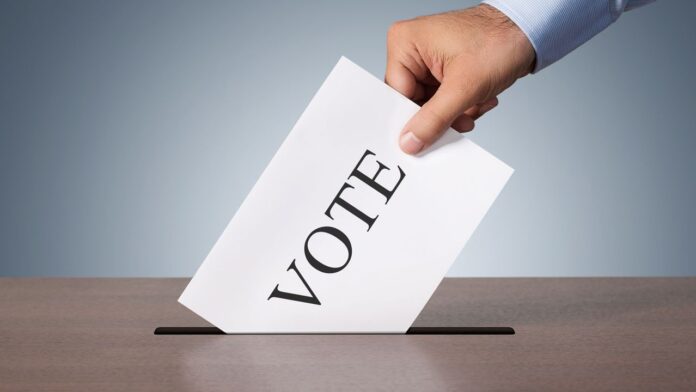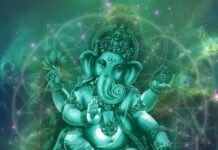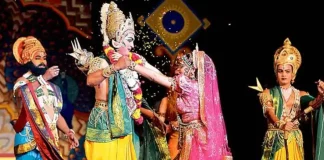It’s election season with much hype around Karnataka State. It’s crucial for the political parties involved for their own reasons. This is the time when voters hear many words like social engineering, caste equation, booth management, etc. These are all part of the continuously refined art of election management by the political parties since Independence.
By Shreyas Goutham
In a vibrant democracy, it is necessary for political parties to evolve these skills continuously with time to get their vision across to the voters for their mandate. But what about the voters themselves? Have they been given proper training or guidance on the art of voting and studying the electoral candidates? Whose responsibility is it to enlighten the citizens with the art of voting?
Aristotle gives a story to explain the governance structure and democracy. Consider a big ship in the middle of the ocean. Now any ship needs a Captain to be responsible for crucial decisions and bringing the vessel safely to the destination. In this scenario what choice do the sailors on board have? Should they appoint a person who is most eligible or decide it on a majority vote so that the person who the majority thinks is eligible to be the captain? Popular one maybe or may not be competent. Competency is not the criteria but perception is. What happens if any competent but popular leader becomes the captain of the ship?
Does that mean the popular vote or democracy is not a good system for governance? Not necessarily. It is just that voters must have a knack for removing The unnecessary information that fits them and looking for issues that are important to them and what is that way which is good in the long term. The sailors must consider that the person who is competent with the necessary skills is right for them even if he is not charismatic or popular. These people may be considered enlightened voters. Voters must be educated with skills to successfully look for a proper candidate who is good for them in the long run.
Historically without proper perspective and mindset countries that have gained freedom in the name and spirit of democracy have fallen into anarchy, in turn leading to tyranny and dictatorship, whose regime would be more brutal and corrupt than the colonial power against whom freedom was one after years of sacrifice and struggle. Pakistan is the best and most relevant example of this phenomenon, which got freedom along with India. Even after 75 years of independence, no elected government has ever completed its full term. It has been battered by military dictatorships or coup d’état. Interestingly, Pakistan was formed on the idea that common Muslims Will not get proper representation but be oppressed in “Hindu majority India”. Ironically the common citizens of Pakistan are still not empowered with the basic right of choosing the government, it is either a political struggle between two families or the military.
This is not a unique situation but the fate of many countries all over the world including many African countries. Their masses are still suffering either under brutal war loads or dictators who are more often than not ruling with the blessings of men with vested interests. In China which is named the Peoples Republic of China, people have the least say in matters of governance.
Recently even in the so-called oldest democracy in the world, there was an invasion of the Capitol Hill building, to disregard the results of the election, which many claimed was rigged. This incident shows the delicate position of democracy and the threat of anarchy.
India in this regard has been sui generis. Despite suffering from poverty, overpopulation and illiteracy all the perfect ingredients for mass uprising and anarchy excluding The ill-advised emergency years, there has been no real threat to the basic democratic structures. Reasons for this may be there in the tradition or historical culture of this land, but the credit has to be given to the popular and basic psyche of citizens with inclination and conviction towards democracy.
Even so, there has not been any large-scale active effort in the country to enlighten the citizen on the art of voting. The conviction in the democratic process is different from the skill of using the democratic mechanisms to its fullest advantage. Political parties for their part instead of educating the electorate have promptly used the innocence of the people for their own advantage by dividing them in the name of caste, religion et cetera. Dynastic politics, appeasement for some sections, distribution of money and freebie culture which are harmful to democracy and the nation are still ground realities of Indian elections.
The significance of the art of voting is best sure in the life of Socrates. It does not mean pursuing a degree or literacy but the instinct for democracy in the common psyche of citizens. Socrates, the teacher of Plato was warning the youth about the dangers of democracy in Ancient Greek and the ill effects on the governance of the Nation-State. There was a referendum for his punishment. Unfortunately, the majority voted for capital punishment by having hemlock. Citizens devoid of the art of voting chose to end the life of Socrates, one of the most enlightened minds the world has ever seen, the father of Western philosophy. This is how a powerful tool to one becomes a weapon to another.
With political parties refining their art of conducting the elections, the citizens must on their part refine their art of voting. With political parties innovating with every election, it is pertinent that voters also improve their skills. Unfortunately, this has not been the case in Indian elections so far. With the election commission coming up with new technologies like electronic voting machines, NOTA etc many of the problems in the electoral systems he is slowly been removed, but at the end of the day, it is the people’s preference and priority that matters. The elected leaders represent the combined consciousness of the people, so awareness in the popular masses determines the future of the country.
This article first appeared in https://samvadaworld.com and it belongs to them.








